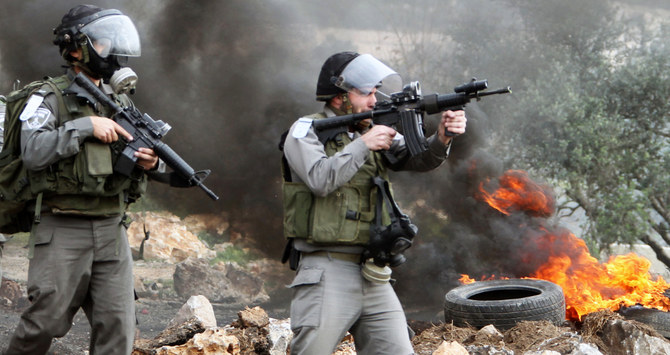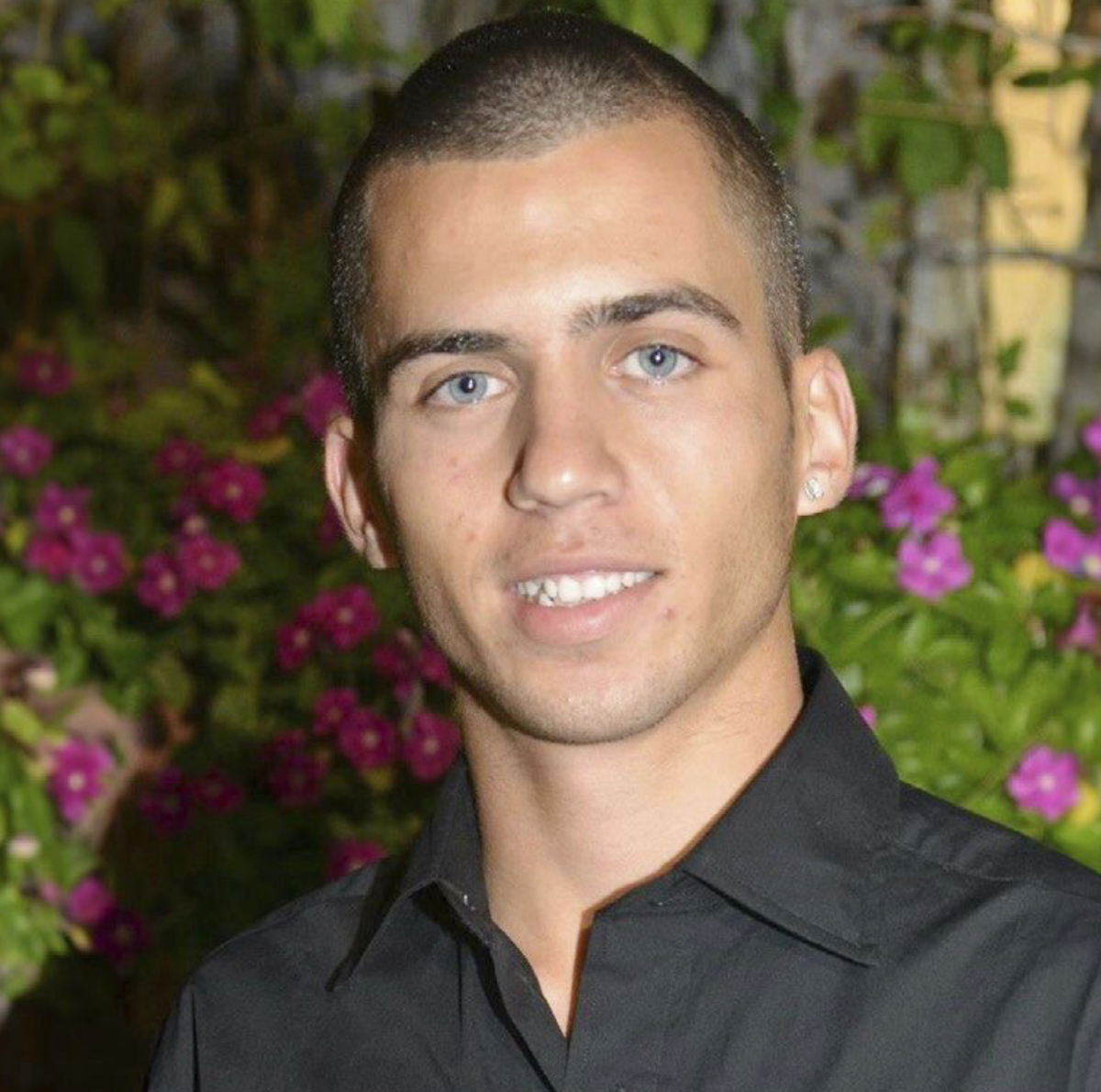BIRZEIT: The parents of a 19-year-old Palestinian man believed to have been shot dead by Israeli soldiers say they have begun receiving mourners, despite having yet to receive offical confirmation of their son’s death.
The family think that Salama Raafat Sharaya’a, from Birzeit in central West Bank, was killed when the vehicle he was in with two other young men was fired on close to the Jalazun refugee camp, north of Ramallah, at about dawn on Monday.
It is believed that two of the occupants were killed at the scene and the third was injured. The bodies of the victims and the injured man were taken away by Israel Defense Forces, but it has not responded to Palestinian authorities’ requests to identify them.
Nasser Sharaya’a, Salama’s uncle, said that although the family had not received official confirmation, they believed the teenager had been killed.
“We do not know his fate, so the family decided to receive mourners for his death,” he told Arab News.
In the past it has taken several months for the bodies of Palestinians killed by Israeli troops to be released to their families for burial. Sharaya’a said he did not want Salama’s mother and sisters to be left not knowing what had happened to him.
Hundreds of Palestinians, including senior political and security officials, have sent their condolences to the family.
Sharaya’a, who worked at a car wash in Ramallah, is one of 113 Palestinians killed by the IDF since the start of the year. The death toll — the highest for five years — has sparked outcry among rights activists over the IDF’s alleged use of excessive force.
Palestinian Authority spokesperson Ibrahim Melhem told Arab News that the high number of fatalities was a result of Israeli political and military leaders issuing a shoot-to-kill directive to troops on the ground.
The blood of Palestinians was being used as a political tool to win over right-wing voters in the upcoming Israeli elections, he said, adding that spikes in killings had been recorded close to previous polls.
Melhem also criticized the “timid” reaction of the international community to the shooting of Palestinians, which he said was giving a green light to Israel to continue with its shoot-to-kill policy.
A senior medical source from the Palestinian Ministry of Health told Arab News that Israeli soldiers “deliberately shoot with live ammunition at the upper parts of the body” to ensure the target is killed rather than wounded.
This was a significant change to what had happened in the past, when it was more likely for Israeli soldiers to aim at their targets’ lower limbs so as to disable but not kill them, the source said.
It was also common for the Israeli army to prevent Palestinian ambulance crews from getting to people injured in shooting incidents, meaning that victims were simply left to bleed to death, the person said.
Even if an ambulance did get through, crews were often unable to save victims of gunshots, the source said.
“If it is an injury to the head, it is difficult for the ambulance crew to save that person.”
Several human rights organizations blame the IDF’s Netzah Yehuda Battalion, which operates in the West Bank, for the rise in the number of fatal shootings of Palestinians, like 78-year-old Omar Asa’ad who was shot dead in Jiljlya village in northern Ramallah in January.
Israeli military expert Eyal Alima told Arab News that although the IDF had dismissed claims it had adopted a shoot-to-kill policy, the death toll told a different story.
“The IDF justifies the (fatal) shooting of Palestinians by saying that when its forces in the West Bank come under fire they regard themselves as being on a battlefield rather than on a police mission.”
“So they respond by firing without any restrictions,” he said.
Alima added that the change coincided with the start of the “Waves Breaker” operation in April when the IDF added nine battalions to its operational force in the West Bank.
That was introduced in a bid to shorten the time it took for Israeli forces to arrest wanted Palestinians, as most attempts resulted in a lengthy gunfight, he said.
Alima said that although there had been several calls — from the US and even from within the Israeli army — to dismantle the Netzah Yehuda Battalion or remove it from the West Bank, the IDF had refused to do so.

























